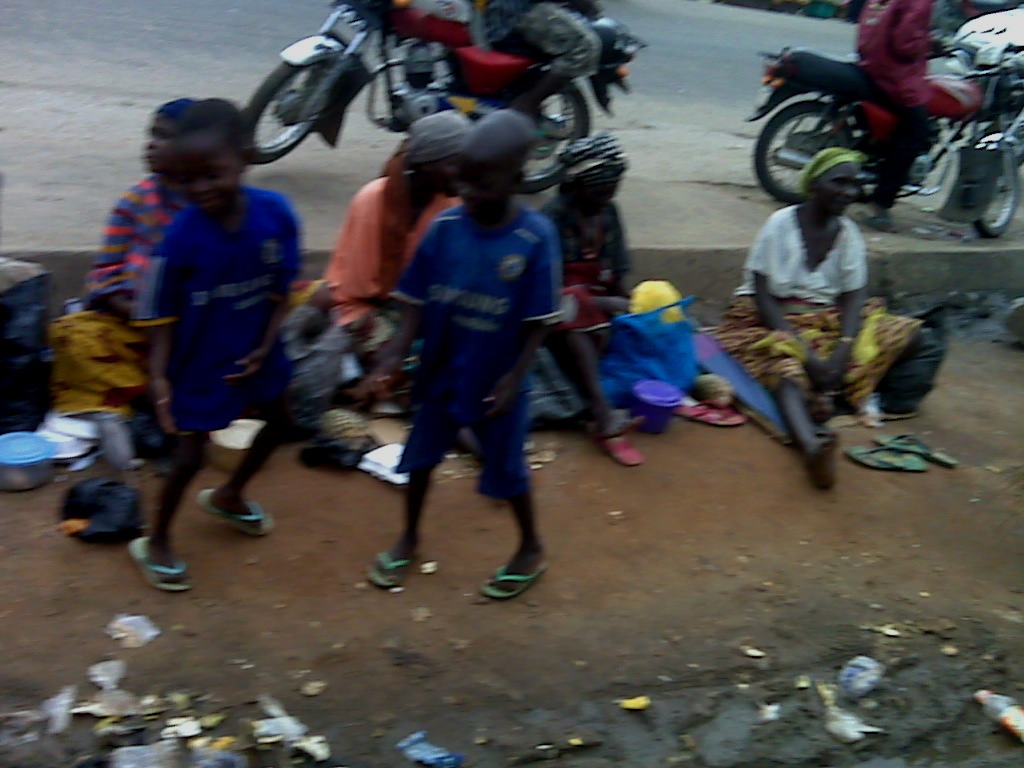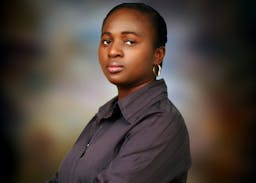Nigerian education is in tatters
Jan 21, 2015
Story

I was not surprised at the headline of the Sun Newspaper of Thursday, 11th of August, 2011. It caption reads: National Shame! 1M students fail SSCE. I was also not surprised when the recent World Bank report did not enlist Nigeria among the countries that will meet the target of MDG on Universal Primary Education by 2015. Why will students not fail the external examination when the internal system is faulty and the students do not have a conducive learning environment. Is it possible for a student who wrote an exam sitting on the floor outside the classroom pass the exam? Right in my very eyes at Ejigbo Grammar School I saw it happened, while I was waiting for my colleagues to proceed to the principal’s office to administer questionnaire to the students. About 50 students in the Junior Class were directed out of the classroom due to insufficient desk and chairs to write their exams outside the class. Some sat on the floor with the paper on their laps which others placed the paper on the floor and knee down to write. I wondered what they will write in such an outrageous situation.
I couldn’t believe what I saw, so I couldn’t even take a snapshot of the scene. It was like a dream, despite the level of work that my government said they are doing especially in Lagos State, I couldn’t believe that such situation still exist in Government Secondary School. I had not even come out of the imagination, when my first respondent told me the school uses a pit toilet. I paused, looked at her again and reaffirmed the question for clear understanding. I said, do you flush the toilet, she repeated again “it is a pit toilet, we don’t flush it” unbelievable! I exclaimed. I did not even see the need to ask the next question which was “do you have separated toilet for boys and girls” because I knew it will be “No”. When I finally asked, it was indeed “No”.
This was confirmed during my interview with the senior school principal, who told me that she constructed her own personal toilet for use when she was posted to the school in 2005. The junior school principal informed me that there are over 150 students in a class. I screamed! She said, I said, it is even better now because she was able to renovate some damage building so that the students can have more classes. She showed me the photos of the buildings before and after renovation. It was not just funny interviewing the primary school students, majority of the respondents in government primary do not know their date of birth and are so afraid to approach their teachers when they need help. Dupe, a female school teacher in a private school said, “I attended the government primary school, I left primary school without knowing how to spell and write my name, I learnt it in secondary school”.
The truth is that Nigerian education is in tatters. The Federal Government is still struggling to adopt a reform model to transform its educational system or they may be pretending to take actions for reforms. Public schools have become a dumping ground for maids and less privileged parents who cannot afford private schools fee. Our leaders are not in any rush to respond to the needs of the public schools because their children are not there, rather they have send they out of the country to receive what they call “ sound” education or to high level private schools in the country. This simple means that the poor do not need a sound education but tatted education. Sound education will be very difficult to achieve in Nigeria because nobody wants to take up the responsibilities of achieving it. I wouldn’t say the teachers in public schools are not qualified; they are, but have refused to give in their best because of poor salary. Government on its own part blame it on low funding, they need more funds for infrastructure, security, equipment, reading materials, salaries and other educational needs.
There is a total disconnect. The tragedy is that those who manage the education system as ministers and commissioners do not know what a public school classroom looks like until they go for “inspection” that is if there will be any. If the governors who award the contracts to build schools do not send their children there, the commissioners do not send theirs, the contractors do not try it, the school inspectors do not risk it, and even the head teachers do not have their wards in their schools, for whom then are the schools meant ? How can anyone truly monitor the schools? The best monitoring is when a minister’s child comes home to report to the father about what happened in his class. Anything else is rumour or fabricated report by absentee inspectors to a governor.
Due to the lapses in Nigeria educational system and structure, there will certainly be increased teenage pregnancy since one classroom teacher will not be able to mentor and guide 150 students in a class. High level of exam malpractice and cultism will be found among students. Students read and cram their notes just to pass an exam and not for future knowledge. The truth is that our educational system is not result-oriented. Poor infrastructure can also contribute to poor performance in school, most school are always flooded during rainy season and have leaking roofs. A school with a pit toilet or untidy toilet exposed the students to infections especially the girls. Infections are very common among girls in school even to those in the tertiary institution.
Education for All by 2015 is just a policy statement with no plan in place to achieve it in Nigeria. The global figure for out-of-school children is estimated at 121 million, 65 million being girls. Over 80% of these girls live in Sub Saharan Africa. In Nigeria, girls’ access to basic education, especially in northern states, has remained low. The 2006 National School Census (NSC) revealed a net enrollment ratio (NER) of 80.6% suggesting that a substantial proportion (19%) of primary school age population (6-11 years) is not enrolled in primary schools nationwide. This represents about 5 million Nigerian children aged 6-11 years old that do not access primary education.
To achieve education for all by 2015, leaders in education sector need to create a result based plan for education in Nigeria. Education, this reform is required to improve the performance of higher education in the country. There should be effective monitoring of project, supervision and effective quality control.




